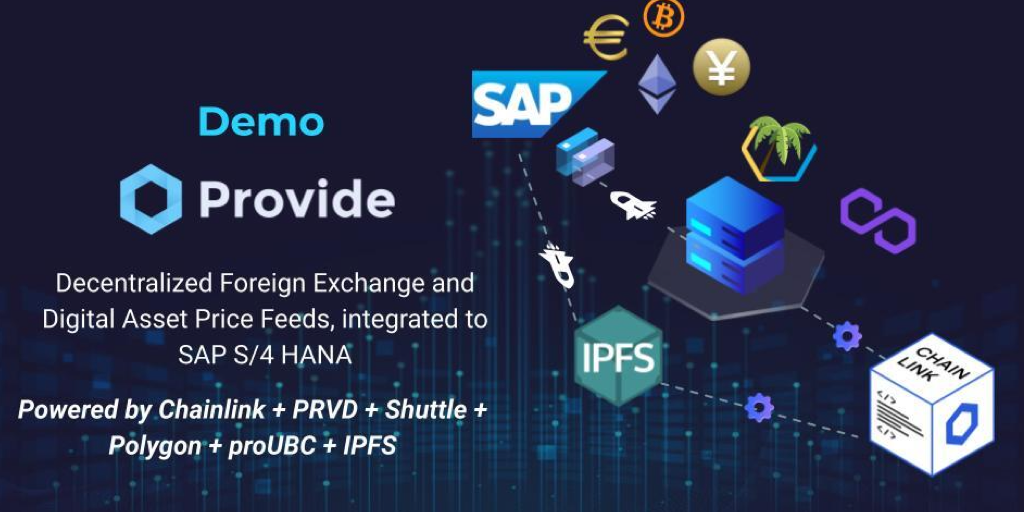As the enterprise DeFi space starts to unfold, a number of opportunities have begun to come into focus for organizations of all sizes, especially in the context of the growing Baseline Protocol ecosystem.
The release of Shuttle v0.9 enabled organizations to design baselined workflows without writing code. It has become increasingly clear how baselined business processes will yield high-fidelity outputs such as verifiable invoices. The opportunities to improve modern treasury operations and optimize cash management using these high-fidelity, baselined instruments will incentivize large organizations to participate in the enterprise DeFi ecosystem and create meaningful financial inclusivity.
Enterprise DeFi Drives Alignment of Incentives
Currently, Provide is baselining the supply chain for CONA Services (Coke One North America) and working with CONA to establish its “Coca Cola Bottling Harbor.” The vision driving the Bottling Harbor is for the smallest organizations to have access to the broader supply chain ecosystem from a technological perspective. This accessibility will translate directly into unprecedented financial inclusivity, with aligned incentives for all participants. The public blockchain is where this inclusivity becomes possible. There is a strong, emerging belief that solutions on a public blockchain will allow organizations to increase adoption among participants of different sizes, and lower the barrier for anyone to join the network.
In addition to creating a network that is easy for all participants to access, we have been working to identify the financial incentives which can benefit all CONA bottlers, which make up about 95% of Coca Cola’s North American bottling supply chain today, as well as their suppliers.
Before elaborating on the details of these incentives, it’s important to point out that CONA bottlers are some of the largest players across Coca-Cola's supply chain. Suppliers, on the other hand, can be much smaller organizations. With this in mind, we have been designing these opportunities to align the financial incentives across the ecosystem to fix some of the challenges that can arise, for example, after a supplier sends an invoice to a bottler. These transactions are typically completed within thirty to sixty days; the smallest suppliers often do not have the resources to wait for invoices to be processed.
We see the opportunity to align the incentives between bottlers and suppliers to get invoices paid faster than with traditional systems. One incentive is known as the “buyer discount,” which allows bottlers to keep the original payment terms (i.e., net 30 or net 45), in exchange for a 1% discount on invoiced amounts. The other incentive is the “buyer yield,” which allows bottlers to earn as much as 6% APY on invoiced amounts which are securitized for up to 180 days. In both cases, bottlers receiver immediate financing by way of a trade finance facility via Provide Payments. Suppliers receive immediate payment.

Modern Treasury
There are acknowledged challenges of the current financial system within existing coordination mechanisms. Innovative ecosystem operators, like CONA, are establishing strong incentives among their partners and suppliers. Frictionless, cross-organizational transactions, a result of baselined business processes, lay the foundation for sustainable and resilient partner networks.
Operators will gain immense value by alleviating the burden of millions of dollars in hidden operational costs through optimizations such as improved financial predictability and reduced counterparty disputes. Moreover, they remain as key enablers of their respective partner ecosystems. Leaders of these organizations, financial and otherwise, become empowered drivers of what a modernized treasury strategy looks like in this age of digital assets.
As digital currencies prove to be appreciating capital assets, it’s inevitable that treasuries will accumulate such assets on their balance sheets. As we see use-cases expand, crypto exchange between companies will become more prevalent. Strategies such as securitization of short-term liabilities will become mainstream.
Cash Flow
Process efficiencies are a wonderful result of state synchronization. They lead to new ways of conducting business between parties, which in turn increases confidence and speeds up the cash conversion cycle. Suddenly, with incentives aligned, it has never been so easy for the smallest network participants to get paid fast. Baselined ecosystems are not just inclusive-by-design; business processes are synchronized and reconciled in real-time.
New Liquidity
We have seen crypto generate many new forms of liquidity. The unique focus Provide puts on enterprise synchronization makes it well-suited to enable a momentous source of new liquidity: enterprise DeFi. We are enabling the output of synchronized processes to be tokenized. Imagine a trillion dollars in enterprise DeFi liquidity by 2025.
It’s becoming increasingly evident that this is an inevitable reality as converging forces drive this new paradigm.
A rising tide lifts all boats…
DeFi continues to swallow up more financial activity and market share much due its permissionless, open-nature. This drives the inherent value of composability - a key property accelerating innovation and adoption. In this same way, our distributed architecture is enabling ecosystems to be synchronized and organically inclusive. We think our coordination of this architecture that enables both synchronization and composability has resulted in the creation of the newest money lego.
The tide is rising. More participants are jumping in to take advantage of unrivaled benefits the traditional system simply cannot offer. The kind of inclusivity we are talking about transcends the enterprise. We are talking about enriching the lives of real people. Is this not a public good?
--
With the latest updates to the Provide CLI, developers can setup baselined workgroups in a matter of minutes. Start onboarding your ecosystems now and be ready for our Shuttle v1.0.0 launch coming in just a few short months!






